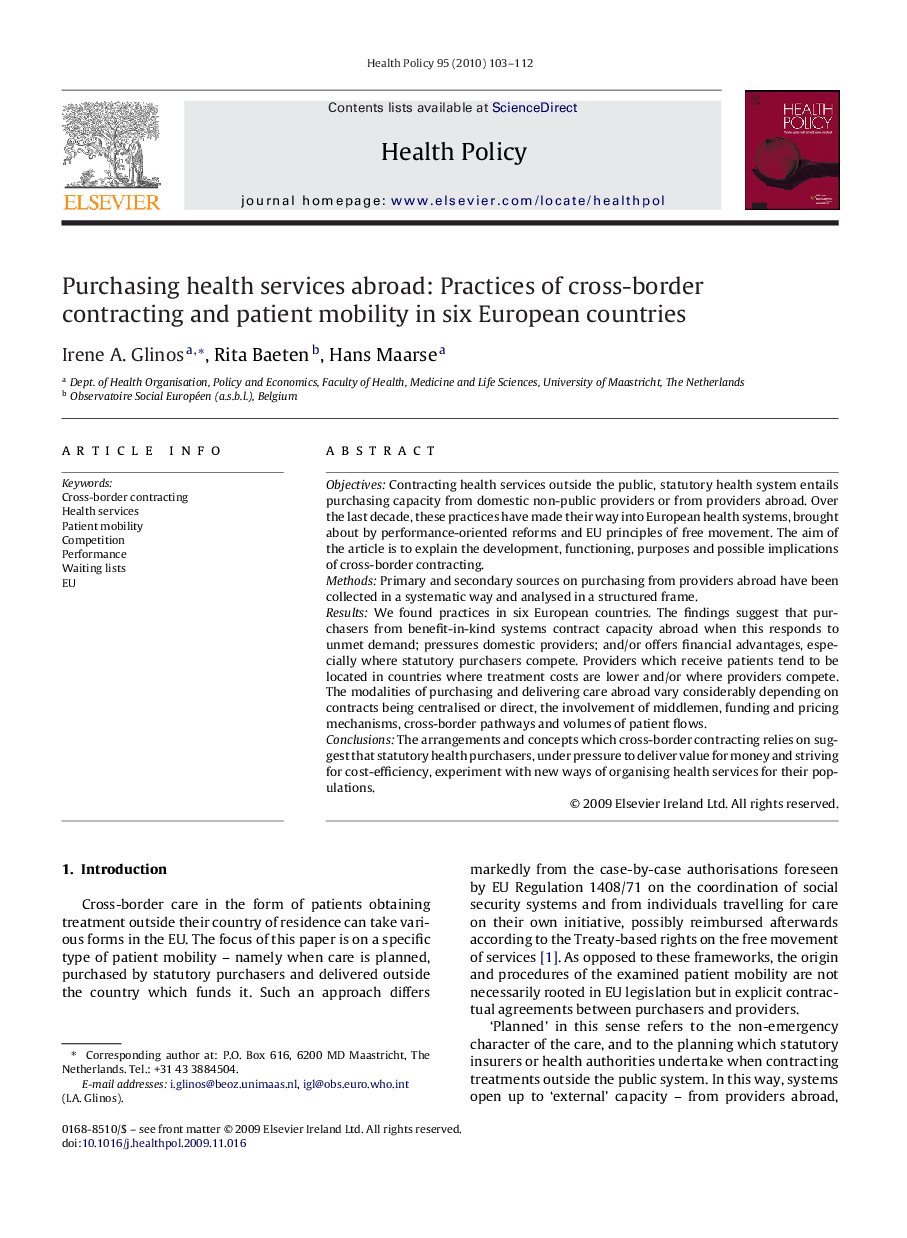| Article ID | Journal | Published Year | Pages | File Type |
|---|---|---|---|---|
| 4198330 | Health Policy | 2010 | 10 Pages |
ObjectivesContracting health services outside the public, statutory health system entails purchasing capacity from domestic non-public providers or from providers abroad. Over the last decade, these practices have made their way into European health systems, brought about by performance-oriented reforms and EU principles of free movement. The aim of the article is to explain the development, functioning, purposes and possible implications of cross-border contracting.MethodsPrimary and secondary sources on purchasing from providers abroad have been collected in a systematic way and analysed in a structured frame.ResultsWe found practices in six European countries. The findings suggest that purchasers from benefit-in-kind systems contract capacity abroad when this responds to unmet demand; pressures domestic providers; and/or offers financial advantages, especially where statutory purchasers compete. Providers which receive patients tend to be located in countries where treatment costs are lower and/or where providers compete. The modalities of purchasing and delivering care abroad vary considerably depending on contracts being centralised or direct, the involvement of middlemen, funding and pricing mechanisms, cross-border pathways and volumes of patient flows.ConclusionsThe arrangements and concepts which cross-border contracting relies on suggest that statutory health purchasers, under pressure to deliver value for money and striving for cost-efficiency, experiment with new ways of organising health services for their populations.
